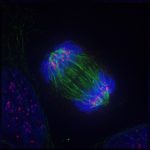terminal
1. Forming or pertaining to an end, placed at the end.
2. A termination, end or extremity.
Origin: L. Terminalis
You will also like...

Neural Control Mechanisms
Neurons generate electric signals that they pass along to the other neurons or target tissues. In this tutorial, you will find the basic structure of a neuron, the different classes of neurons, and membrane potentials. It also includes the structure of the nervous system...

Growth and Plant Hormones
Plants, like animals, produce hormones to regulate plant activities, including growth. They need these hormones to respond well to their environment and to sustain growth, development, and dispersal. Plant biologists recognize five major groups of plant hormones: auxins, gibberellins, ethylene, cytokinins, and abscisic acid. Find out in this guide the importance of each hormone in the life of a plant...

Chemical Composition of the Body
The body is comprised of different elements with hydrogen, oxygen, carbon, and nitrogen as the major four. This tutorial will help you understand the chemical composition of the body. This will come in handy when considering the various interactions between cells and structures. ..

Genetic Information and Protein Synthesis
Genes are expressed through the process of protein synthesis. This elaborate tutorial provides an in-depth review of the different steps of the biological production of protein starting from the gene up to the process of secretion. Also included are topics on DNA replication during interphase of the cell cycle, DNA mutation and repair mechanisms, gene pool, modification, and diseases...

Respiration
The human respiratory system is an efficient system of inspiring and expiring respiratory gases. This tutorial provides details of the different parts and functions of the respiratory system...


